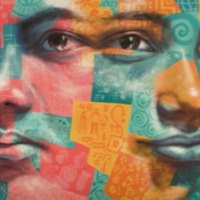
My name is Charlotte Awino and I am from Uganda. In 1996 I was fourteen years old and attended a boarding school in northern Uganda: St Mary’s Senior Secondary School, Aboke. The rebels of the Lord’s Resistance Army, (LRA), attacked our school at night and abducted us, 139 girls. They tied us up with ropes. 109 of the girls were later released to the deputy head mistress of the school and 30 girls were kept, including me. We were marched off for three months across the Ugandan border into southern Sudan.
So many atrocities were committed against us, the children who were abducted. Even our basic right to life was taken away. So many of the children were killed because they were too tired to walk long distances. Others starved to death. Many died due to cholera, but also we were used as human shields during fighting. So many of us we were killed at the battle. The rebels put us in front when they were fighting the Ugandan government soldiers.
As usual, we girls suffered more. We were distributed to rebel commanders as objects without rights and were sexually abused. We had to carry very heavy loads, cook and other duties including digging in the gardens in the rebel camps. I was given to a man who had 20 other abducted girls and he was a brutal man and I had two children with him.
One day the rebel leader Joseph Kony ordered the soldiers to beat me two hundred strokes for an allegation that I was trying to escape. I wasn’t conscious, yet the beating continued, and I was left for dead. I woke up after 10 hours of unconsciousness. I felt very thirsty, but I was denied water until very late in the evening, somebody gave me little water to drink. After that I was confined in a small hut under armed guards for several months. The guards were under orders to shoot me if I moved 5 meters from that hut.
I was in captivity for seven years and ten months and I escaped in the year 2004, when the rebels had come back to northern Uganda. I could take months talking about what I went through, and what I saw. But I must be brief, so I will tell you what I think must be done to help others like me. Affected people should be given support to recover psychologically, they should be given counselling, accepting them back into the community. They should have physical support, health provision of basics, like shelter, and others. They should be given educational support. There should be protection, where each member state should protect its citizens, and especially the vulnerable women and children during wars and conflicts. A mechanism must be put in place to track and trace missing people and the means must be put in place to identify the trafficked persons. The UN protection law should be translated in local languages globally.
Whoever wants to fight against the government or opposition groups must be made aware that they have responsibilities not to kill or abduct the local people. Signatories to the UN statutes should practically commit themselves to the laws they commit themselves to. Uganda is a signatory country but it did not protect people like me during war. I left so many children behind me still in captivity. Some of them are already young adults. What can the UN do for them? Other trafficked children are going to become prostitutes, rebels or terrorists, like I was?
As told to the UN Human Rights Council, 7 June 2010









